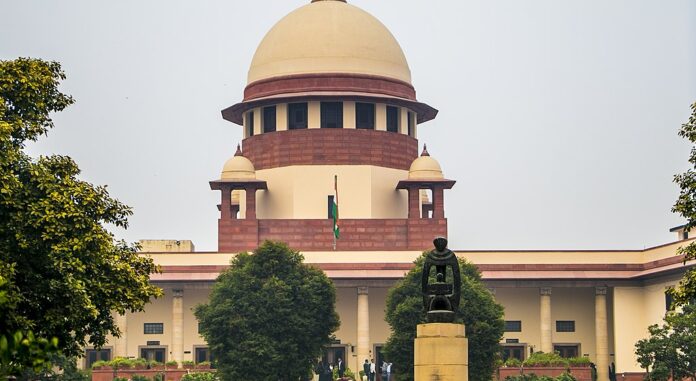Tamil Nadu drags Centre to Supreme Court over withheld funds tied to Hindi language policy clash
Tamil Nadu has escalated its standoff with the Union government by filing a petition in the Supreme Court demanding the release of ₹2,151 crore in crucial education funds. The Centre has frozen the allocation under the Samagra Shiksha Scheme for the 2024–25 financial year, linking the funds to Tamil Nadu’s acceptance of the National Education Policy (NEP) 2020, which mandates a controversial three-language formula including Hindi.
The State government alleges that the Union’s move is a coercive federal overreach and an attempt to impose Hindi through financial blackmail. Tamil Nadu follows a strict two-language policy, teaching Tamil and English, and has consistently opposed the imposition of Hindi, citing constitutional rights and State legislation that protects Tamil’s primacy in schools.
Through its suit, filed under Article 131 of the Constitution, Tamil Nadu challenges the Centre’s withholding of what it calls its “obligatory share” under the education scheme. The State says this move cripples the implementation of the Right of Children to Free and Compulsory Education Act (RTE Act) and harms over 43.94 lakh students, along with 2.21 lakh teachers and thousands of school staff.
The dispute centres on the Centre’s insistence that Tamil Nadu must fully implement NEP 2020 and sign the Memorandum of Understanding (MoU) for the PM SHRI Schools scheme, which showcases full NEP adoption. Tamil Nadu rejects this, arguing the schemes are separate and that the NEP is a policy statement without legislative force binding on the State.
According to the State, the Ministry of Education’s Project Approval Board approved ₹3,585.99 crore for Tamil Nadu in February 2024, with the Centre’s share at ₹2,151.59 crore on a 60:40 cost-sharing basis. However, none of this Centre’s share has been disbursed due to the State’s refusal to accept the three-language policy clause in the NEP.
Tamil Nadu’s resistance is rooted in decades-old legislation, including a 1968 Assembly resolution and the Tamil Nadu Tamil Learning Act, 2006, which mandates Tamil teaching from Class I to X. The State asserts that the Centre’s push violates laws enacted by the Tamil Nadu legislature, such as the Tamil Nadu Uniform System of School Education Act, 2010.
The petition argues that administrative letters from the Centre cannot override State laws, especially on education, a subject under the concurrent list of the Constitution. It further claims that the Centre’s action violates multiple constitutional articles including Articles 14, 21, 21A, 41, and 45, alongside the RTE Act’s provisions.
The Tamil Nadu government also highlights parliamentary replies showing that for 2024–25, the Centre disbursed Samagra Shiksha funds to all States except Tamil Nadu, Kerala, and West Bengal. The withheld funds have delayed salaries, teacher training, textbook distribution, uniforms, and infrastructure projects across Tamil Nadu’s government schools and hostels.
The suit demands that the Supreme Court declare that neither the NEP 2020 nor the PM SHRI Schools scheme can bind Tamil Nadu without a formal written agreement. It seeks a ruling that the Centre’s conditional withholding of funds linked to NEP adoption is unconstitutional, arbitrary, and illegal.
Tamil Nadu urges the Court to direct the Union government to release its statutory 60% share of funds annually before the academic year begins. The petition frames the Centre’s stance as a blatant violation of cooperative federalism and an assault on the educational rights of millions of Tamil Nadu’s children.
As this case unfolds in the highest court, it spotlights the ongoing friction between India’s federal structure and the Centre’s push for a uniform language policy in education. Tamil Nadu’s firm resistance underscores the deep-rooted regional identity politics entwined with language and education in India’s democracy.
